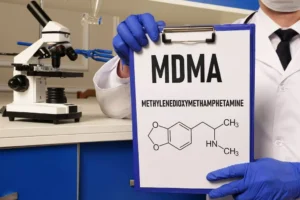
Fortunately, this allergy is not as common as other food allergies, and you may continue to enjoy your fine wine without worrying about getting an allergic reaction. Still, for those who experience red wine allergy, it is a severe kind of allergy, the symptoms of which can range from mild to extremely powerful. Red and white wines are made from different types of grapes and undergo different fermentation processes, which can affect the amount of certain allergens they contain. For instance, red wine tends to have higher histamine levels, which could trigger allergies in some individuals. The second category, Red Wine Intolerance occurs even though there are no allergen-specific immunological reactions. Symptoms commonly experienced after a glass or two of a full-bodied red wine include headache, stuffy nose, skin flushing.
Seek immediate medical attention

Reactions of redness or swelling will often occur quickly if you’re allergic to the allergen. Reactions to wine could also depend on the specific type of grape used in the wine. For example, one publication reports the occurrence of negative reactions in those with hypertension after consumption of wine containing Merlot grapes. Plenty of articles cover sulfites in wine and tell us they are bad for our health, causing hangovers, headaches and worse. We touched upon this in a previous article and established – unsurprisingly – that alcohol is the root cause of most hangovers. If you’re starting a new medication, it’s always a good idea to talk with your healthcare provider or pharmacist about how your medication can interact with alcohol.
Can Red Wine Really Heal Cancer And Prolong Your Life?
In fact, researchers have made very clear distinctions between these two physiological responses to wine, as can be seen in the figure below. Those who have an allergy or intolerance to wine should follow the directions of their healthcare provider and may be asked to refrain from drinking red wine. In some cases, a healthcare provider may identify an allergy to a specific ingredient or compound in wine, like grapes. Because wine allergies and a sulfite sensitivity can potentially be severe, you may want to consider carrying an epinephrine autoinjector (EpiPen).
Can you get tested for alcohol intolerance?
People who suffer from seasonal allergies may be likely to also respond to non-allergenic triggers for rhinitis (a stuffy nose and sneezing). In addition, women reported greater incidences of nasal symptoms after consuming alcohol. Bonci says the most important thing to remember about wine intolerances is that the effects are often dose-dependent. This means the more red (or white) wine you drink, the more likely you are to experience some kind of reaction—and the worse it will be.
- H1N1 histamines can affect anyone, but they may be more sensitive than others.
- Alcohol intolerance is caused by a genetic condition in which the body can’t break down alcohol efficiently.
- That runny or stuffy nose you get if you’re intolerant to alcohol may feel and seem like allergies, but it’s not.
- If you’ve had reactions to wine, could you also have reactions to other things?
- Blood testing can test for total levels of IgE or IgE levels against a specific allergen.
- Sulfites are an ingredient used to make beverages and foods last longer.
While just about anything can trigger an allergic reaction, some things (like a bee sting, peanuts, and certain foods) are more likely to trigger allergic reactions than others. The best way to avoid reactions is to remove the allergens that cause red wine allergy symptoms. PureWine products remove histamines and sulfites without wine makes me sneeze changing the taste, color, or viscosity of your favorite red wines. Like meat, seafood, cheese, bread and vegetables, wine does contain low levels of histamines, with red wines containing more than white wines. We believe that most instances of flushing caused by wine are primarily due to these biogenic amines in red wine.

- You’re thumbing through the wine menu at a fancy restaurant, nodding sagely at the broad selection…
- You may have heard that some people with food allergies are slowly given increasing amounts of allergen orally in order to promote tolerance.
- Wines, even some of the finest ones, though prepared with finesse, may have chemical additives to enhance the taste or preservatives.
- In more severe cases, symptoms can escalate to difficulty breathing or anaphylaxis, which requires immediate medical attention.
